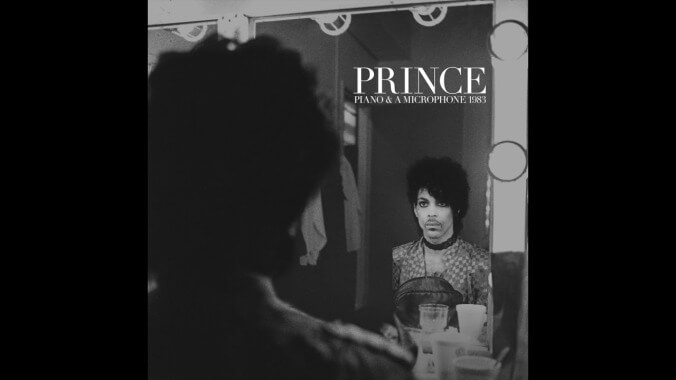A rare view of Prince, plus Metric and more in this week’s new music

Piano & A Microphone 1983 is an unpolished Prince gem, while Metric loses focus on Air Of Doubt, and Lonnie Holley is louder than ever on Mith. Plus, we take a look at Carrie Underwood’s sixth LP, Cry Pretty.
Christine And The Queens’ excellent Chris is also out today; read our featured review here.
Prince, Piano & A Microphone 1983
[Warner Bros.]
Grade: B
A prized rarity among collectors and bootleggers, Prince’s Piano & A Microphones captures the late “1999” and “Purple Rain” singer between those career milestones, seated at a piano and whirling through portions of nine songs in a single take. The recording is raw—Prince can be heard instructing the engineer to turn down his vocals and flip the cassette over—but that’s also its power. Here’s a notoriously polished artist vamping his way through embryonic versions of future classics, some (a cascading run through “When Doves Cry” B-side “17 Days”) a few months off from seeing the light of day, at least one (a “Strange Relationship” that begins with its Sign O’ The Times stomp, before veering in more abstract directions) still years away from its final form. Piano & A Microphone 1983 verges on postmortem voyeurism, but it’s also a unique insight into the way a notoriously private artist’s creative impulses fired. With “Purple Rain” and a cover of Joni Mitchell’s “A Case Of You” side by side, you can really hear the Canadian singer-songwriter’s influence on Prince; before “Strange Relationship” crops up, its meteorological intro gets interpolated into the spiritual “Mary Don’t You Weep.”
RIYL: Home demos. Hearing Prince’s voice in registers you’d previously assumed were merely post-production trickery. Wrestling with ethical questions about whether or not you should even be hearing these recordings.
Start here: The unreleased tracks that conclude Piano & A Microphone 1983—the bluesy goof “Cold Coffee & Cocaine” and the pleading “Why The Butterflies”—are the least complete of the session. But they’re preceded by “Wednesday,” a Purple Rain outtake whose gorgeous aching is only highlighted by the track’s lack of resolution. [Erik Adams]
Lonnie Holley, Mith
[Jagjaguwar]
Grade: A-
“My thing as an artist, I’m not doing anything but ringing that Liberty Bell, ding, ding, ding, on the shorelines of independence,” Lonnie Holley told The New York Times in 2014. On his third album, the self-taught visual artist and musician resounds louder than ever. Mith finds his intuitive, free-form compositions filled in by friends including Laraaji, saxophonist Sam Gendel, and the late Richard Swift. Their playing—soft as a singing bowl here, red-hot and glowing there—supports Holley as he traces a painful lyrical path from the space dust of the cosmos to the foaming wake of a slave ship. His voice is rich and often phlegmatic; the vocal lines he unwinds are knotted and frayed. Songs, shapeless and lengthy, seem to permeate one another, and Holley mostly eschews traditional verses and choruses. But the musical spaciness only enhances his already-considerable dignity and the gravitas of his songwriting, making Mith a powerful, prophetic collection.
